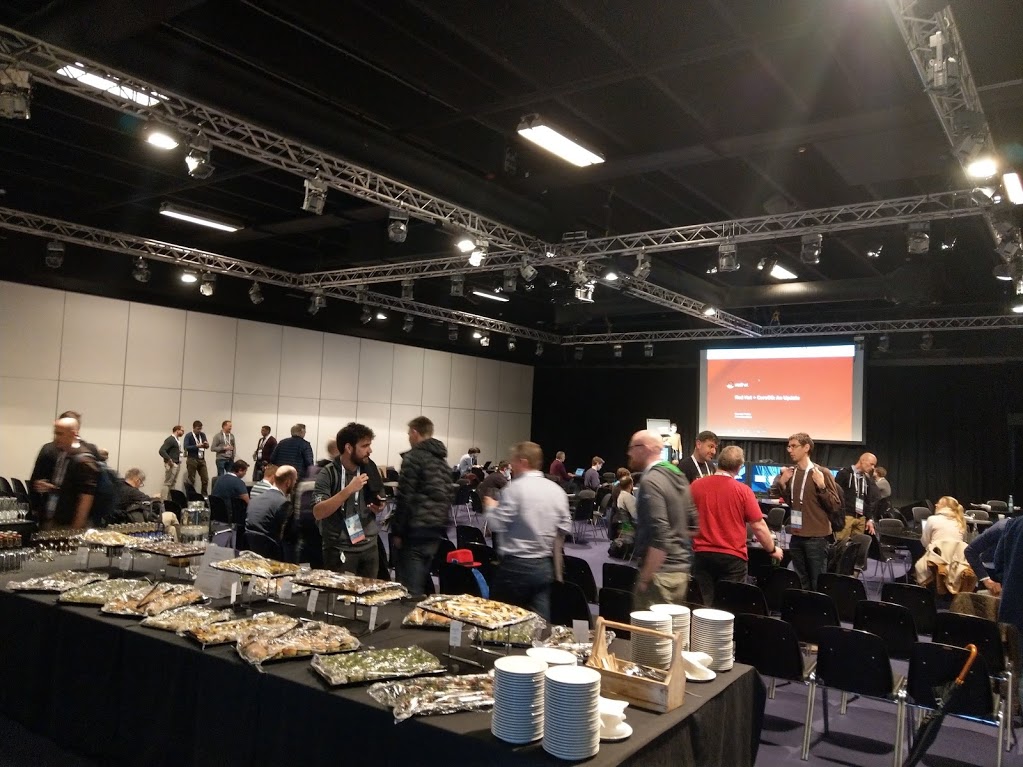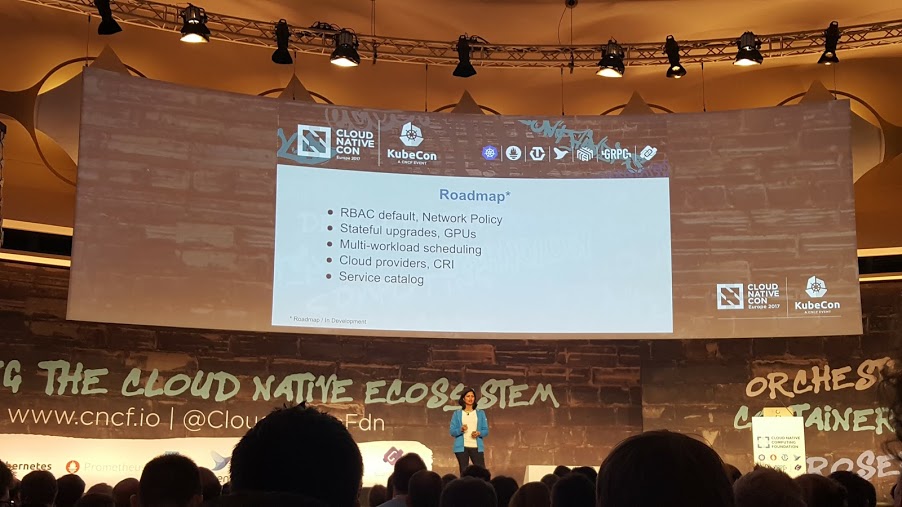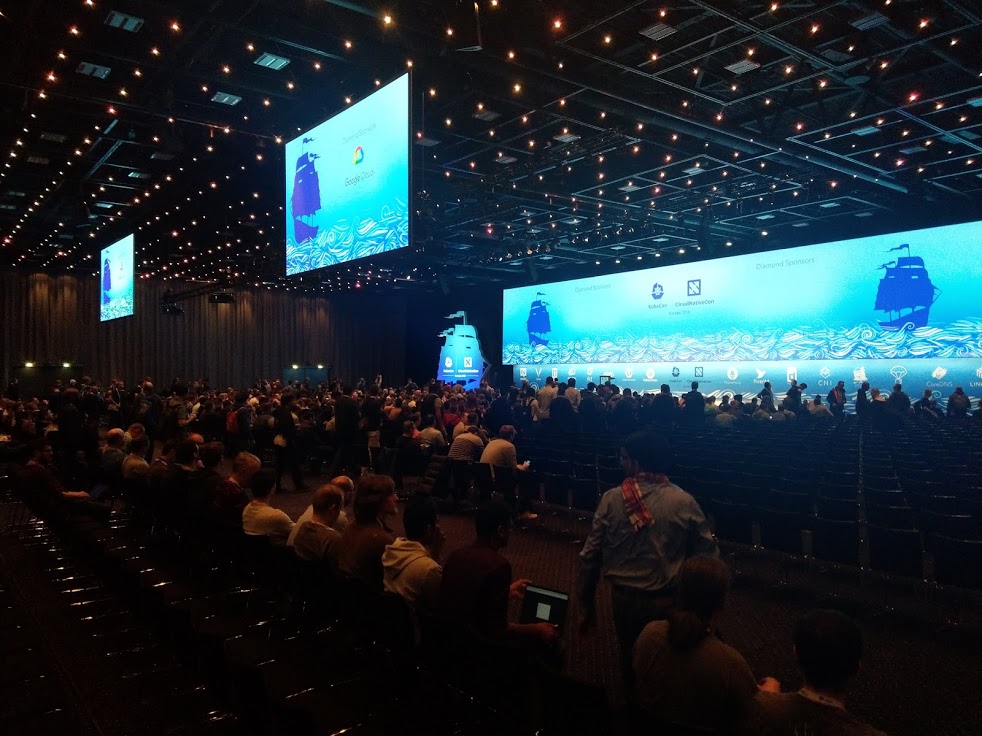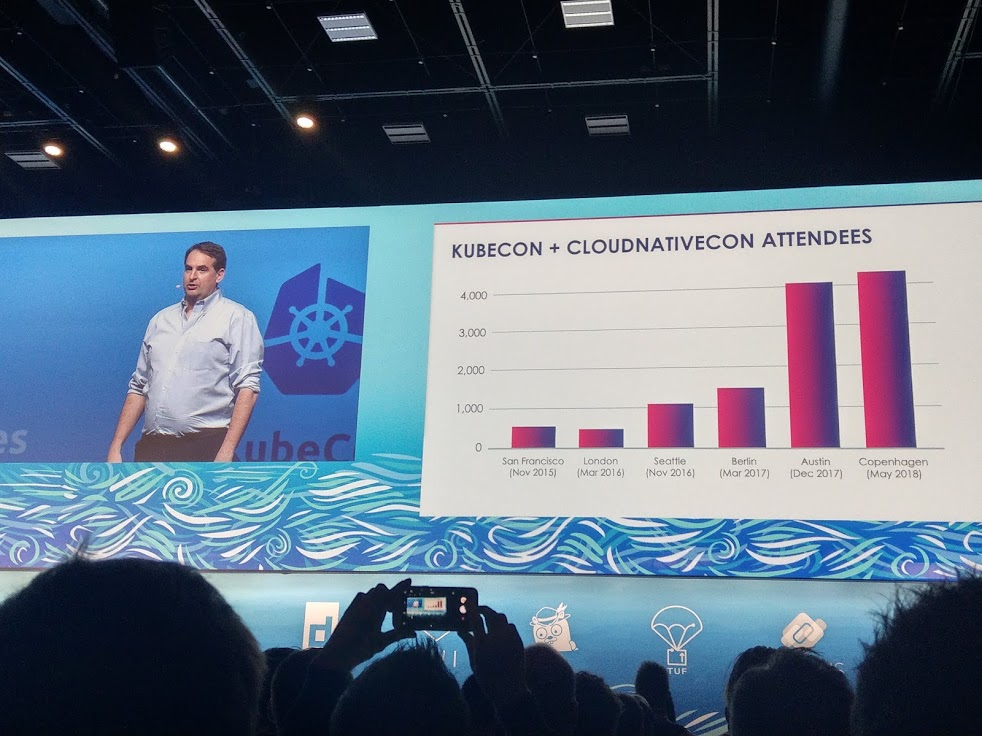KubeCon in Europe this year was held in the city of Copenhagen in Denmark, spanning 3 days from 2-4 May (with an additional workshop day on 1 May).
This is part 1 of a multi-part report on my time at the conference. In this series, I’ll cover the pre-show, keynotes, topics of interest, and last, but not least, hallway conversations in the conference!
Pre-show event: OpenShift Commons Gathering

OpenShift Commons is a place for sharing of knowledge, experiences and practices among users, partners, customers and contributors of OpenShift.
Red Hat has been organizing OpenShift Commons Gatherings for the past few years as a 'mini-conference' before each KubeCon, sharing customer case studies, technology and roadmap updates, and panel discussions over the Cloud Native landscape.
Topics in this session included:
-
Kubernetes Operator framework
-
The problem that the Operator framework is addressing is the 'day 2' operations of applications such as updates, backups and scaling of a suite of software (consider how this applies to an etcd cluster’s creation, adding/removing members, upgrades, etc).
-
Machine Learning frameworks and use cases
-
JupyterHub
-
seldon-core
-
radanalytics.io
-
Pachyderm, ML/AI workflows, repeatability and compliance
-
Kubeflow
-
Repeatability in Data Science
-
The following is a recording of the entire session, and I think it’s well worth watching:
KubeCon First impressions - exponential growth
When I attended the 2017 KubeCon EU in Berlin last year, it was well-attended.

But this year was phenomenal. The size of the main event hall felt 3 times larger than the previous year.

And sure enough, this was confirmed by Dan Kohn’s keynote.

At about 4300 attendees, KubeCon in Copenhagen boasts the highest attendance ever, almost triple the number who attended the Berlin event in 2017. The conference program also grew from 8 concurrent tracks over 2.5 days in 2017, to 14 over 3.5 days in 2018.
Dan’s keynote also mentioned how fast the Cloud native Landscape was growing.
And also introduced the interactive Cloud Native Landscape at https://landscape.cncf.io/.
See the rest of his keynote here.
More…
See Part 2 of my notes on the keynotes at KubeCon EU 2018.
